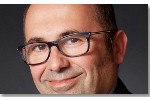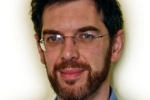Topics in Internet & Society Interdisciplinary Studies
Politecnico di Torino, Doctoral School
23, 27, 28, 29 and 30 June 2017
Sala Conferenze "Luigi Ciminiera"- DAUIN (Map)
Aula 2M - Cittadella Politecnica (Map)
Click here for the course program in pdf format


|

|

|

|

|

|

|

|

|

|

|
How to apply
The course (3 credits) is open to students from all PhD programmes, and to any scholar interested (all backgrounds of study are welcome). PoliTO PhD students have to insert the course in their career plan ("carico didattico"). See info on the course code here.
Course description
It is commonly understood that the Internet now affects almost every aspect of society – from knowledge sharing to economic interactions – and of personal life. Understanding the relationship between Internet and society is a complex endeavour, since its shape and its evolution are not an immutable technological law, but instead the consequence of specific choices, both private and public, that could very well change over time.
This course – addressed to students of all Doctoral Programmes – is aimed at increasing the awareness on the deep motivations that make the Internet technologies a disruption with respect to the past, exploring related problems and opportunities in their relationship with the society. An interdisciplinary approach is used: technological perspectives are combined with the legal, socio-economical, historical and philosophical (included ethics) dimensions, addressed by scholars at global level, all of which have tangible implications in many domains, and may very well suggest new lines of reasoning to ongoing research of PhD candidates.
Schedule in brief
- Friday 23 June, 10.00-17.15
- Tuesday 27 June, 08.30-17.15
- Wednesday 28 June, 10.00-15.30
- Thursday 29 June, 11.00-12-30
- Friday 30 June, 14.30-16.00
Programme of the lectures
Friday 23 June, Sala Conferenze "Luigi Ciminiera", DAUIN (Map)
10.00-11.30 Social Movements and Digital Media
Elena Pavan, Scuola Normale Superiore of Pisa (Italy)
[SLIDES]
The widespread adoption of digital media as tools for protest and activism has prompted a highly interdisciplinary reflection on how increased communication possibilities entwine with the organizational and the symbolic dimensions of social movements. Moreover, new avenues of research have opened that consider media practices as forms of resistance in their own right, focus on communication governance, privacy, and technology-related rights as contested issues, and use digital data as a primary resource to understand the social and the political spheres. In this talk I will discuss some of the main theoretical and methodological implications for reflecting on and studying the nexus between social movements and digital media.
14.30-15.30 Casa Jasmina
Bruce Sterling, Author and journalist (USA) e Jasmina Tešanovic, Activist and writer (Serbia)
[SLIDES]
Three years ago, a unique residency was created in the city of Turin in Italy. "Casa Jasmina" was a joint project of the Torino Fab Lab, the Arduino open-source electronics network, and the Toolbox Co-Working design office-space. These offbeat Italian enterprises all share space in a formerly derelict FIAT factory, so they decided they needed to create a guest house that reflected their own values. That was when Bruce Sterling, science fiction novelist and former Art Center "Visionary in Residence", offered his alleged help. "Casa Jasmina" is named after Jasmina Tešanović, Bruce’s wife, and the driving force behind this project. Using open-source software and FabLab technologies such as routers, laser-cutters, 3Dprinters and Arduino control boards, Jasmina and Bruce lofted out and furnished a design-fiction “house of the future” that includes two bedrooms, a kitchen, a bathroom, an automated garden, a media center, many Internet-of-Things gizmos and endless torrents of espresso and prosecco. Artists, curators and astronauts showed up as guests. And, since ”Casa Jasmina” is an emanation of “MakerCulture”, Bruce and Jasmina will explain how you can make one yourself.
15.45-17.15 Open access, sustainability, markets: what do these phrases and words mean to various actors?
Jean-Claude Guédon, Université de Montréal (Canada)
[SLIDES]
The landscape of scholarly publishing has silently, yet significantly, shifted since the 2nd World War. At the center of scholarly and scientific communication, researchers and their associations have tended to be replaced by large, commercial, international publishers. This shift has coincided with the mutation of publishing caused by computers and the Internet. The rise of Open Access has emerged as a response to these shifts: with digitization, marginal zero cost of copying and disseminating, the whole communication infrastructure could be revisited in depth. At the same time, this transformation has led to attempts from various actors to redefine and control the publishing sector to their advantages. in this regard, a number of terms have taken a strategic importance and their meaning are stakes in a struggle to create the optimal communication infrastructure for the kind of activity that knowledge creation is about. In this particular presentation, the terms "open access", sustainability, and markets will be scrutinized, for example in official presentations, or in various reports presented to various bodies, especially at the European level.
Tuesday 27 June, Sala Conferenze "Luigi Ciminiera", DAUIN (Map)
08.30-10.00 Visibile colleges: science, the Internet and the anonymous use of reason
Maria Chiara Pievatolo, University of Pisa (Italy)
[SLIDES]
“The media create the impression that science consists of a set of true beliefs. But networked science [...] looks much more like the scientist’s view of science than the media’s view.”
David Weinberger, Too Big to Know, Basic Books, 2011, p.106.
In the age of the printing press, it was easy, however inaccurate, to depict science as a set of true beliefs. In fact, we could only see articles and books, but the process of their discussion and selection was concealed from our eyes. It was, therefore, easy to separate them from their context, and to understand them as products instead of as parts of an ongoing, unfinished conversation. In spite of the digital revolution, the current 'industrialized science" emphasized such a trend, by adopting bibliometrics and "publish or perish" as research evaluation standards. This too close connection between (commercial) publishing and academic career is determining a crisis in science, which is affecting the very institution of anonymous peer review and of its accountability. Is there a way out? We shall explore a challenging proposal from India: moving the anonymity from the field of discussion to the field of “truth”, by anonymizing authors and de-anonymizing reviewers.
10.15-11-45 Smart drones for smart cities: enhanced security or privacy nightmare?
Giovanni B. Gallus, Lawyer (Italy)
[SLIDES]
Drones are evolving and becoming more and more autonomous and "intelligent": swarms of drones can already be efficiently deployed for surveillance of large areas. The reductions of costs, the increased resolution of cameras, the vast array of available sensor and the integrations into the "smart city" environment foster new opportunities but pose new threats as well, especially with regard to the respect of fundamental rights and data protection. Is it possible to find a reasonable balance?
14.00-15.30 Visualisation of research results: fundamentals and main issues
Marco Torchiano, Politecnico of Turin (Italy)
[SLIDES]
A key step in any research is the presentation of results. As the saying goes a picture is worth a thousand words, so we as researchers often use diagrams to convey the findings of our work. While we carefully refine and polish the language in our writings, little attention is generally paid to the graphical language of the diagrams. The goals of this lecture are to highlight the main issues and to provide the basic instruments to enable researchers producing effective and correct diagrams.
15.45-17.15 Why fake news sudden’s boom is a good news for traditional media outlets
Anna Masera, La Stampa (Italy)
[REUTERS INSTITUTE REPORT 2017]
After his affirmation in US presidential election, Trump has never missed the occasion to treat American media with anger, calling them “Fake News”. As a side effect it's worth noticing an unexpected improvement in newspapers' reputation followed by a sharp increase in subscriptions, likely driven by a snap of pride. Moreover, this social climate yielded more awareness on the role digital platforms as Facebook and Google should responsibly perform aiming to tackle fake news' spreading in filter bubbles. Now it’s time for journalists and newspapers to regain public’s trust, weaving a new relationship out from the rubble
Wednesday 28 June, Sala Conferenze "Luigi Ciminiera", DAUIN (Map)
10.00-11.30 Wireless Communications as a Means for Social Innovation
Daniele Trinchero, Politecnico of Turin (Italy)
The talk is about the experience done by the iXem Labs of Politecnico di Torino, where Wireless Communications are applied to increase environmental safety, to promote sustainable agriculture, to reduce energy wasting and to reduce cultural, economical and infrastructural digital divide, mainly in rural areas. Real Internet of Things implementations will be described.
14.00-15.30 The recent progresses of ICT and related implications
Angelo Raffaele Meo, Politecnico of Turin (Italy)
[SLIDES]
First the advances of microelectronics and communication technologies in the last thirty years are synthesized and discussed. These advances, of the order of one million at constant costs, have made it possible to implement new important applications. The most interesting applications - Internet of things, big data, factory 4.0, three dimensional printers – will be presented and discussed. Such advances have important applications in many fiends of human activities and are an opportunity of a better progress.
Thursday 29 June, Aula 2M, Cittadella Politecnica (Map)
11.00-12.30 The Social Innovation Oxymoron: Old and Emergent
Mario Calderini, Politecnico of Milan (Italy)
[SLIDES]
Social Innovation and Entrepreneurship are undergoing a complex transformation. This is not a universal phenomenon, i.e. this does not mean that all forms of Social Innovation and Entrepreneurship will be subject to such transformation. Instead, part of it is evolving into a very interesting organizational hybrid (i.e. intentionally pursuing profit and measurable social impact objectives) , knowledge/technology-intensive and thus drifting from labour-intensive to capital-intensive entrepreneurial model. This new form of Social Venture is going to be a very interesting option for new inclusive growth policies and for a new generation of technology transfer and knowledge exploitation, more accountable to society.
Friday 30 June, Sala Conferenze "Luigi Ciminiera", DAUIN (Map)
14.30-16.00 Examination
Requirements to pass the course
Politecnico di Torino will grant 3 credits for this course. Requirements to pass the course: attending all lectures and pass the examination.
Contact
info AT nexa DOT polito DOT it








